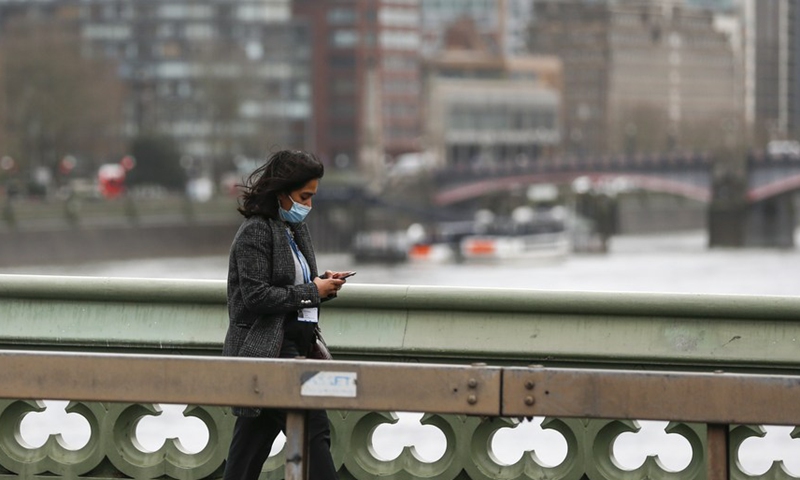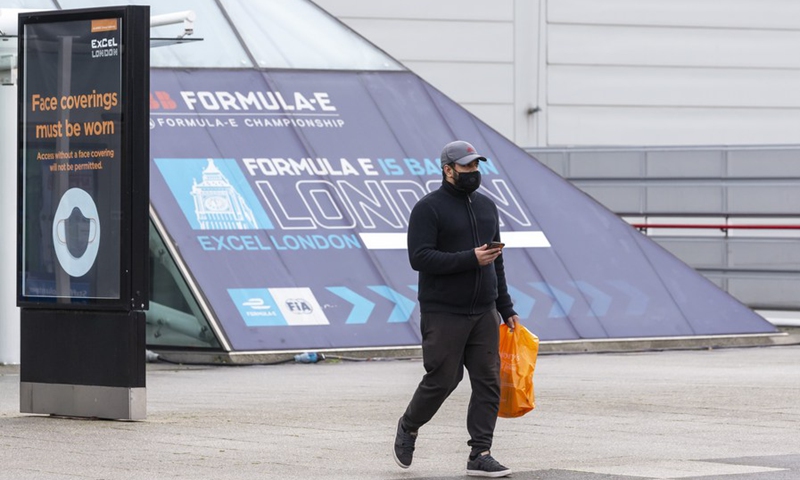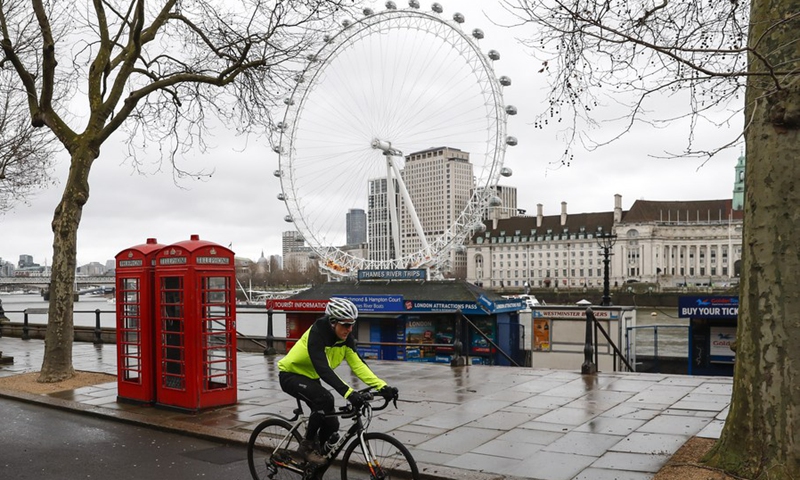UK PM announces "roadmap" exiting lockdown with schools in England reopening from March 8

A woman wearing a face mask walks in central London, Britain, on Feb. 17, 2021.(Photo: Xinhua)

A man wearing a face mask walks out of the Vaccination Centre at ExCel exhibition centre in London, Britain, on Jan. 12, 2021.(Photo: Xinhua)

A man cycles past the London Eye by the Thames in London, Britain, on Feb. 17, 2021.(Photo: Xinhua)
British Prime Minister Boris Johnson announced Monday that schools in England will reopen from March 8 as part of the "roadmap" to ease the current coronavirus lockdown.
As the first part of the "four-step" plan, children and young people of all ages will return to classroom learning in schools and colleges in England from March 8, Johnson told lawmakers in the House of Commons, the lower house of the British parliament.
Secondary school pupils will be required to wear face coverings in classrooms and shared spaces like corridors, said Johnson.
Also from March 8, two people are allowed for recreation in an outdoor public space such as a park, which means they would be allowed to sit down for a coffee, drink or picnic, according to Johnson.
From March 29, either six people or two households will be allowed for outdoor gatherings, which is understood to include gatherings in private gardens. Outdoor sports facilities such as tennis or basketball courts will reopen, said Johnson.
In the second step, non-essential retail, hairdressers and public buildings like libraries and museums will reopen from April 12.
Meanwhile, outdoor settings like alcohol takeaways will be allowed and beer gardens, zoos and theme parks will reopen.
Indoor leisure like swimming pools and gyms will reopen but wider social contact rules will continue to apply in all settings, which means no indoor mixing between different households will be allowed, said Johnson.
In the third step, from May 17, the "rule of six" will be abolished for outdoor gatherings if the data allows and the gathering of up to 30 people will be permitted.
But indoors, only two households can mix with the rule of six still applied in hospitality settings like pubs, said Johnson.
Meanwhile, cinemas, hotels, performances and sporting events will reopen with rules of social distancing. Up to 10,000 spectators will be allowed into outdoor venues like football stadiums.
In the fourth step, from June 21, all legal social restrictions are expected to be removed, with the reopening of the final closed sectors of the economy including nightclubs, said Johnson.
According to the prime minister, four conditions must be met at each phase of lockdown easing: the coronavirus vaccine programme continues to go to plan; evidence shows vaccines are sufficiently reducing the death toll and hospitalization; infection rates do not risk a surge in hospital admissions; and new variants of the virus do not fundamentally change the risk of lifting restrictions.
Johnson told MPs that his roadmap exiting the lockdown depend on "data not dates" and the plan was designed to be "cautious but irreversible".
There was "no credible route to a zero-COVID Britain nor indeed a zero-COVID world", he warned.
Another 10,641 people in Britain have tested positive for COVID-19, bringing the total number of coronavirus cases in the country to 4,126,150, according to official figures released Monday.
The country also reported another 178 coronavirus-related deaths. The total number of coronavirus-related deaths in Britain now stands at 120,757. These figures only include the deaths of people who died within 28 days of their first positive test.
The latest figures were revealed as more than 17.7 million people in Britain have been given the first jab of the coronavirus vaccine.
England is currently under the third national lockdown since the outbreak of the pandemic in the country. Similar restriction measures are also in place in Scotland, Wales and Northern Ireland.
To bring life back to normal, countries such as Britain, China, Germany, Russia and the United States have been racing against time to roll out coronavirus vaccines.
